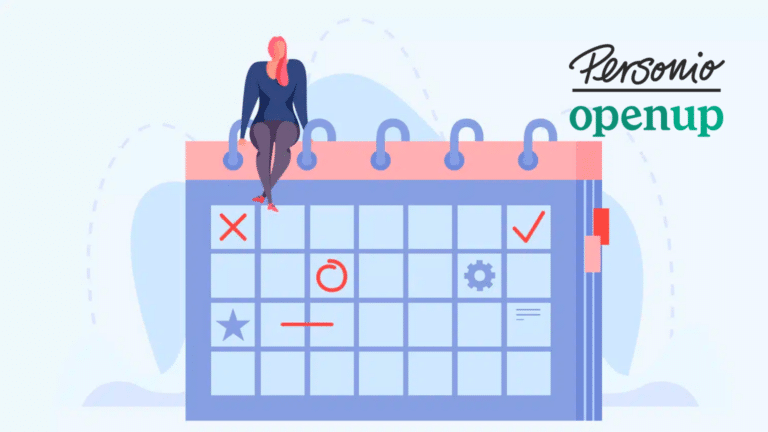In fast-growing companies, things are always changing. In fact, change can seem like the only constant. Growth causes business operations, teams and practices to continually evolve. This brings about opportunities and improvement, but can simultaneously lead to a certain degree of resistance within the organization. Change can make us uncertain and restless, and it can affect our mental health. It’s often the job of the People Team together with managers and leaders to not only ensure that everything is being communicated effectively, but also that everybody feels happy and understood.
We spoke with Danielle Cummins and Charlotte Lafferty (Head of People Operations and Head of Talent Acquisition at Mollie), Elise Baeriswyl (People Team at Picnic) and Rebecca Clarke (Head of People at Recruitee) to find out how they navigate change, mental health, and wellbeing within their organizations.
The two sides of change
First off, it’s important to understand how change can affect us. At first glance, it can seem mostly positive because change usually means progress. But there’s also another side. “Change causes uncertainty,” explains Gijs Coppens, healthcare psychologist and founder of OpenUp. “While we as humans love security. We want to have a clear idea of what’s coming next. This gives us a sense of control and relief.”
But change is also good. “We all want to evolve, grow and develop. Change is a necessary part of this. So, it’s a double-edged sword: We find it interesting and exciting, but also frightening,” explains Gijs. This inner conflict often shows up on a personal level, but it’s especially common in a professional environment. And this takes its toll on employees, even if they aren’t always aware of it.
Making mental health part of the conversation
Danielle Cummins often sees this in practice. “During interviews, I often hear people say that they want to play a role in change and make an impact, but they don’t often consider the effect this could have on their mental health,” explains Danielle. “You put all this energy into your work and then there’s a change of course and you have to adjust your plans. And then it changes again. You have to stay sharp and keep up with these changes. That’s a constant challenge and you have to really enjoy it.”
Rebecca Clarke recognizes this all too well: “People aren’t afraid of change, they’re afraid of the unknown impact or risks this change may have on them,”’ she explains.
Even though people sometimes seem to find change challenging, it doesn’t have to be. Even the most resilient people sometimes struggle with the feelings of uncertainty it brings up. This means it helps to create a culture in which it’s normal to share these feelings and challenges, both with each other and with your managers.
👉 OpenUp offers mental health support and helps employees with their everyday challenges, both work-related and private. Read on to learn more. Book a demonstration here.
“Together with OpenUp, we help colleagues to talk about their challenges. Talking seems to be a crucial component in finding a good work/life balance,” explains Elise Baeriswyl. Employees want there to be somebody they can chat to about the things they’re up against. It doesn’t matter whether those things are big or small.
“I’ve come to love change, but it can also be exhausting and challenging.” – Danielle Cummins
Normalizing the topic
Normalizing this topic within the organization is key here. It makes it easier for employees to approach their managers if they’re struggling with something.
“At Picnic, something changes every day. I find that energizing, but it can also be nerve-wracking or scary. You have to keep finding your way and setting new boundaries,” shares Elise. “Growth and change involve a degree of trial and error. One day you might feel like you have everything under control and the next day not so much. At times like this, it’s good if someone’s got your back. Maybe that’s your team leader, manager or somebody else who can help you.”
Rebecca emphasizes this: “Everyone has to deal with mental health. Through training or coaching, it’s important for managers to learn how they can discuss this with their team.” Employees need to feel safe and comfortable enough to approach their managers and allow themselves to be vulnerable. Managers then need to know how to respond to this.
“We want to be sure that everybody is getting the mental and emotional support they need. With OpenUp, we offer 24/7 access to coaching led by certified psychologists to our colleagues.” – Charlotte Lafferty
Be open, transparent and communicative
Finally, Rebecca believes that open and clear communication is essential during a period of change. “Employees want to know what’s going on. You achieve this through clear and transparent communication. There also needs to be plenty of opportunity to ask questions. People will want to know what impact these changes will have on their role or their team.”
“Make sure you’re including the ‘why’ in your explanation. This makes it more likely that people will accept the changes because it helps them to see the potential benefits.” – Rebecca Clarke
And don’t forget that a big part of accepting a change is about getting used to it. Gijs: “You need time to mentally process a message or update. Don’t assume that everybody will get everything right away – you need to give people the time they need.” So, what’s the best way to communicate about change? Explain what is going to happen, give as much insight into the future as possible, and make sure there is adequate mental support and opportunity to ask questions.
👉 OpenUp offers every employee – from retail personnel to managers – the support they need. Book a demonstration here.





